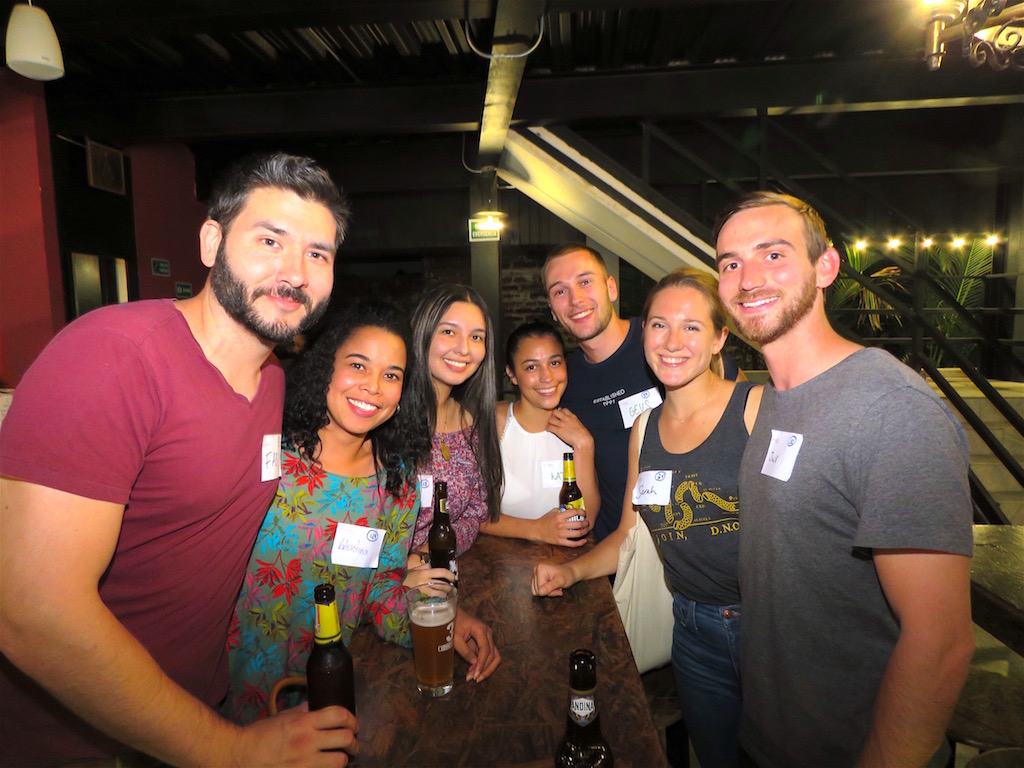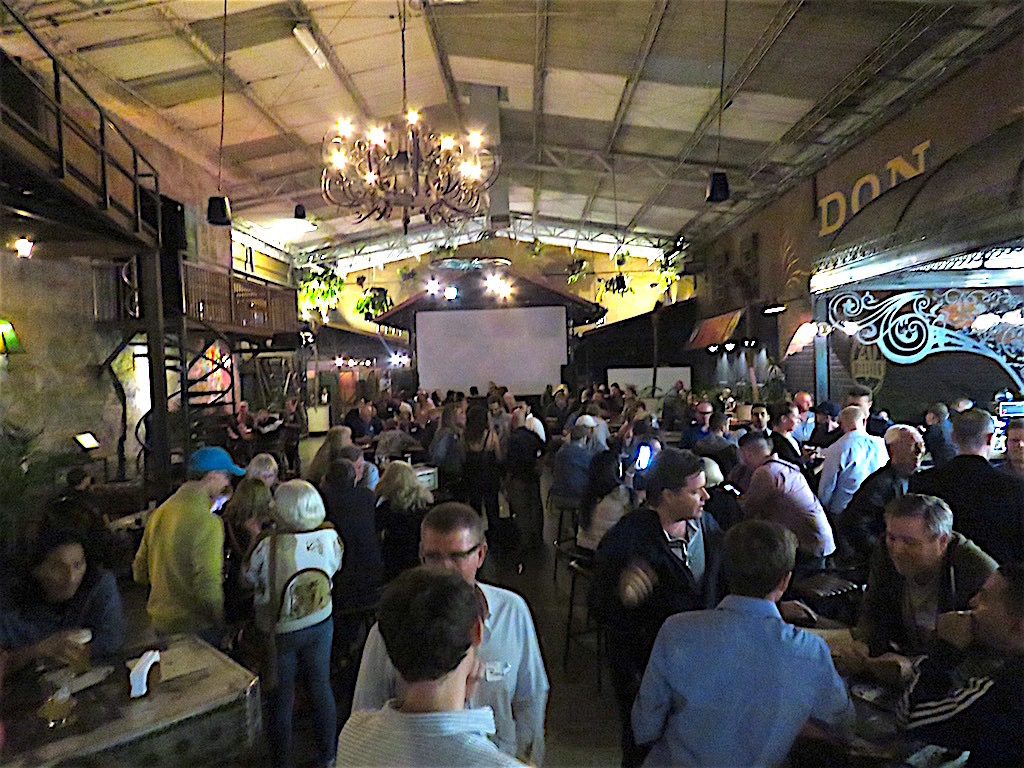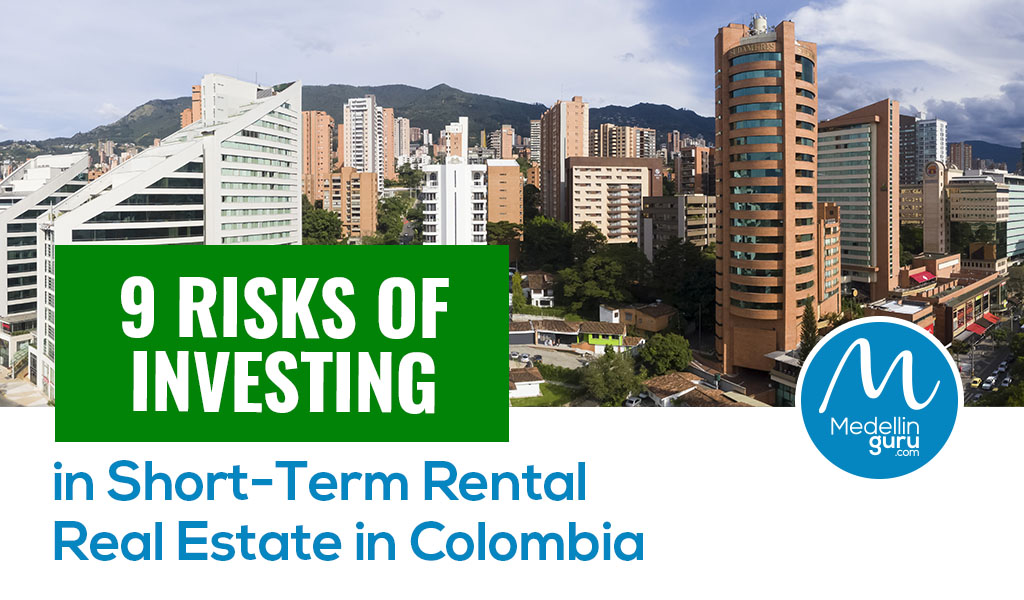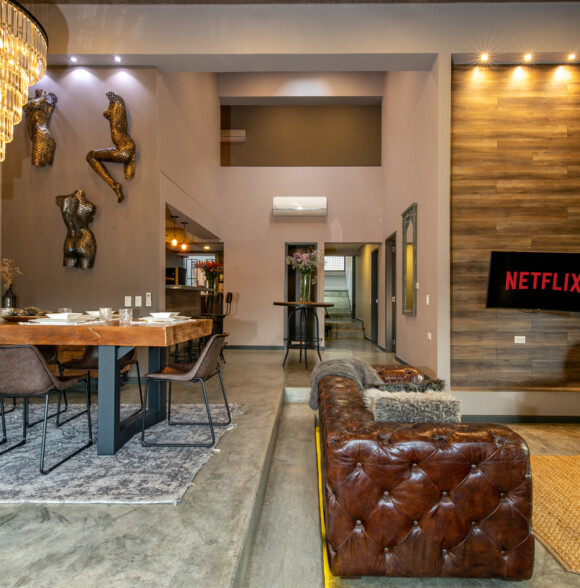If someone were to call you a gringo in Colombia, how would you take it? Should you be offended? Is the word “gringo” offensive or not?
Several Medellin Guru readers have asked recently if the word gringo is offensive. So, we now look at this. Would you shrug this off? Would you see it as funny? Would you be offended?
I have lived in Colombia for over eight years and heard this word used countless times, by staff in stores and restaurants, Colombian friends, other foreigners and even strangers on the street. Also, there are a few varieties of this word:
- Gringo – a man
- Gringa – a woman
- Los Gringos – a group of gringos
- Gringito/Gringita – a child
I have been called a gringo many times while living in Colombia. And I have heard many Colombians use this word to refer to foreigners from the United States, Australia, Germany, England, France, and many other countries. But rarely has there been a tone of offense in anyone’s voice.
In addition, I have asked my Colombian wife’s family and my Colombian friends and they all have said that Colombians rarely use this word disrespectfully or “despectivamente” in Spanish.
However, you will often find gringo being used on online Facebook groups, where foreigners become insulted at the thought of being marginalized by the use of this word or using this word to down-talk other foreigners.
Also, as a foreigner in Colombia be aware that there can be gringo pricing in Colombia, which means foreigners are charged higher prices for goods and services. This is due to being a foreigner located in a foreign country like Colombia. We have a separate article that looks at gringo pricing in Colombia.
Who is a “Gringo”?
Aida Ramirez provided a decent definition of gringo in an article on NPR “Who Exactly is a Gringo”.
Gringo can be used to broadly and inoffensively refer to a group of U.S. citizens. I’ve also heard it used as a term for Europeans. I’ve heard the term used as a name for people who don’t speak Spanish. It can also be used to refer to Hispanics who speak very little or no Spanish at all. Gringo is also sometimes used as a name for Hispanics who are not in touch with their Latino roots, or for any person who is ignorant of Latin American culture or history.

Some foreigners at the February 2020 Medellin Guru event at Mercado De La Playa
What is the Official Definition?
In Latin America, gringo is a word that generally means “foreigner.” This is often a white person from the United States or Europe. It can also refer to a person who doesn’t speak Spanish.
According to the dictionary of the Royal Spanish Academy, which Spanish speakers consider the ruling body for the Spanish language, the word “gringo” has a neutral definition:
Foreigner, especially English-speaking, and in general speaking a language other than Spanish.
Also, the word gringo is permitted by wires services such as AP in their Spanish-language copy. So, gringo, in and of itself is generally not considered offensive.
This word was first recorded in 1787 in the Spanish Diccionario castellano con las voces de Ciencias y Artes with a meaning of foreigner. In addition, according to the Spanish etymologist Joan Corominas, “gringo” derives from the griego Spanish word, referring to a language that cannot be understood.
Also, according to the Urban Dictionary, “gringo” has a neutral definition:
If you know any Mexican people then you’ll know this is a non-derogatory term used to refer to U.S. citizens.
Folklore says it was generated when the U.S. invaded Mexico, wearing green uniforms, and the people shouted at them “Green Go Home”.
With time it lost all derogatory status and was turned into the most common word to refer to any U.S. citizen.
However, according to the Merriam Webster dictionary definition, gringo is defined as:
(Often disparaging) A foreigner in Spain or Latin America especially when of English or American origin. Broadly: a non-Hispanic person.
Can Gringo Be Derogatory or Offensive?
There is disagreement among some Hispanics and non-Hispanics about this word. But it really depends on the inflection and tone when the word is used. The word can be used in a derogatory fashion and can be considered xenophobic or an ethnic or racial slur.
If someone says this to you in Colombia, do not feel offended immediately. Check the context and have an open mind.
Keep in mind the definition of gringo in Latin America generally means a foreigner. But it really depends on the context – who uses it, the tone and situation it is used in and where it is used.
In my experience while living over eight years in Colombia, I have most commonly heard the word gringo being used in a derogatory fashion by foreigners in Colombia talking about other foreigners.
The English equivalent of gringo when being used in a derogatory fashion by a foreigner is typically being used to call another foreigner “jerk” or “dummy”.
Also, the word is commonly used by foreigners to talk about gringo pricing, which generally means when foreigners are charged higher prices for goods and services due to being a foreigner.

Medellin Guru November 2019 meetup at 20Mission Cerveza with over 210 attendees, the largest “gringo” event in Medellín
The Bottom Line: Is Being Called a Gringo Offensive in Colombia?
The number of foreigner tourists visiting Colombia is growing at a double digit rate each year. So, it is only natural that many Colombians have resorted to innocently placing foreigners in one category: “gringos.”
Race isn’t normally a matter of critical importance in Colombia. A foreigner may be identified by Colombians because of clothing preferences, language used, behavior and hair color and is not solely based on skin color. So, the word gringo is generally not considered an ethnic slur.
In addition, Colombians may use the word gringo instead of extranjero or estadounidense, as it is shorter and easier to say.
The bottom line in Colombia, the word gringo is generally not considered offensive, so don’t presume it is. And if you go to Brazil they appear to consider anyone not from Brazil a gringo – including Argentinians, Colombians and Mexicans.
Also, don’t be so shocked if you hear words in Colombia like: gordo (fatty), flaco (skinny), gordito or gordita (little fatty), vieja or viejo (old). These are all common terms of endearment. Colombians will say these words to family members or friends. But if they feel comfortable with you they might say these words to you also.
Are you offended by the word gringo?
Sign up for the Free Medellin Guru Newsletter – You can see all of the previous Medellin Guru weekly email newsletters and sign up here.




































26 thoughts on “Gringo: Is Being Called a Gringo Offensive in Colombia?”
Im italian and im not often referred as a gringo by colombians. My spanish is very good since its very similar to my native language, and colombian culture and italian culture are very similar as well. Im from southern italy (Napoli) and where im from we can also refer to ourselves as “paisa”. For all these reasons, not often a colombian will refer to me as gringo after meeting me. They will usually call me “italiano”. I can see that they consider me having the same blood as them, because we share the same latin heritage.
Ron: The bottom line. Perfect answer!
Me too. Life is too short to stress out about such a triviiality.
personally, I dont take offense at any moniker…Gringo,cracker, pinche gringo,gweilo,…who cares, i am what I am; a white man who embraces all cultures, the former having no choice the latter my disposition….
” marica ” in Spanish means ” queer ” .. ” homosexual ” .. “faggot ” .. that word is definitely an insult
That is definitely what I got out of it, so I was perplexed when it was being used casually among friends as well. I asked one woman about it and yes, she said it did mean gay, etc, it is also a way of jokingly calling someone a “dummy”. Mind boggling
I don’t find the word, “Gringo” offensive but I easily can understand why some would. It’s a cultural distinction between Latin America and the rest of the world. In my neck of the woods, when you come upon a foreigner, it’s polite to simply refer to him or her on the basis of their nationality. For example, “Have you met my good friend, Alexandre? He’s an astute Frenchman and hails from Paris.” Or you simply keep your mouth shut, minding your manners and let their behavior and social disposition speak for itself. To my knowledge, there is no catch-all phrase in English to describe entire civilizations of people outside of my own.
In many Latin cultures this nuance is not observed which only makes “gringos” nervous about their social status/standing in the Latino community. Personally, I don’t refer to myself as a gringo when speaking to Colombians or any other Latin nationality. In fact, I can’t recall ever being called a gringo directly in my travels or business dealings. I’m an American black man and so for me to refer to myself as a black-gringo is just…well…ridiculous. If I had a choice on what others should refer to me as, I would simply say, “Hola, mi nombre es Jeff” and offer my hand. Whatever they choose to call me after that is their business not mine.
verdad.
In general in whatever country, I don’t like such terms, whether used affectionately or not. I have lived abroad for many years. We should just refer to the foreigner by name, profession, or at worst, their nationality… but not slang names.
I prefer to be addressed more formally by name or something more pleasing to my sense of formality. When I am in the company of my well educated and upper strata friends and associates I receive the respect deserved of an American residing and contributing to Colombian society, however; I choose to live with and walk amongst common salt of the earth Colombian non gentrified and when I am called Gringo I don’t growl and snarl my nose up in disdain or disgust but correct my brethern by telling them that Don Ronald is more appropriate. On the street to strangers who might hail me as Gringo, I understand that they are just trying to be friendly and break the ice. We live in a multi strata society here, we can’t expect to change people overnight. Go with the flow and let your hair down. This is Colombia, not Monaco or Lichtenstein. We can move to Llanogrande if we want to be addressed formally all the time.
Being a Gringo here in Colombia is all a matter of context.
I personally do not like being singled out for the fact that I come from a different culture, but also recognize it is impossible to avoid. We are that. I made the choice to be here.
Many Colombians are curious and welcoming, and just as many see us as someone of whom they can take advantage, and they try to do it. Understandably, they have the false impression that we have everything that they don’t. Unlike stressed-out New Yorkers, Colombians are generally non-confrontational and they back off pretty easily if you call them on it. It’s something to be managed—I stay vigilant.
I accept my Gringo status, but I ultimately will never be fully comfortable with it. I now have a deeper appreciation of what it means to come to the USA from a foreign country to live your life.
More common is “marica” which has a few meanings that I still get confused by hearing it tossed around…and these days in Medellin…A LOT. If the listener isn’t aware of all the uses of the word in their context, it can be really off-putting in the same way as hearing “gringo” for others.
Marica in my world means only one thing. If I hear someone use that word it only means one thing in my mind and I grew up in Queens, New York City around Puerto Ricans, Dominicans, Colombians, Cubans and every other brand of Latin. They all used that word as a homosexual slur.
Correct me if I am missing something or am misunderstanding your comment. I know of no other use for that word. Comments please. If someone calls you that it is not meant as a compliment, unless someone here has augmented the meaning to something entirely benign. Here in Paisa Medellin everything is possible. LOL. They make up new words constantly. But Marica in my world still only means one thing and its very offensive and could get someone in big trouble here in Macho Man City. I wouldnt recommend using it under any circumstances unless you are looking to wreak havoc.
Absolutely. I’ve heard that word is used a lot in Bogota but it was not until my last two trips to medellin (I’ve been there now 8 times) that I’ve heard that word used on a consistent and daily basis. It was being tossed around constantly between people obviously well acquainted with each other but somewhat like a playful word. I thought it was pretty shocking so I asked one of the women I was hanging around with and she found it kind of tough to explain, but certainly did say the word is a slur, but they also take it as “dummy” but in a joking way. Gringo isn’t a big deal at all, but I really hate hearing marica…makes my nostrils flair.
Me too.. time for another empanada. 🙂
I had to explain to some friends and family that my wife calling me gordo or gordito was a term of endearent.
Yes the term “gordito” from a spouse or girlfriend is based on affection. However, a general reference to someone as gordo or gordito also signifies that the person is fat or obese. Not always a positive reference
Lol. Nice way of being told to go on a diet. I am overweight and being called gordito has prompted me to eat less and go to the gym.
Gordito sabroso is also another endearing reference to being called a cute fatty. Omg. The diet here is high starch, high carb, high salt. Very good for construction workers and laborers and poor folks. For many of us retired American couch potatoes this diet is far from healthy. It takes a lot of effort to eat healthy in a Country like Colombia. Many Colombians are blowing up like balloons as they have adopted our north american diets of fast food and sugar soft drinks and potato chips. Frito Lay and Pepsico are racking up millions here. They’re lovin it. Wonderful fruit and veggies and fish are here in sbundance and inexpensive. There is no reason to be fat here unless we choose to be. The choice is ours. The problem here is unhealthy food is sold on every corner of this city and in between. This is a difficult place to be on weight watchers but not impossible. Eat healthy and live a long life here in Paradise. One poision to avoid here is all this Alcohol. I have never seen a country so filled with Chronic Alcoholics. All this beer that so many of our expats consume here is way over the top. Time to join beer belly anonymous.
Spot on. That’s why I try to eat out at Mundo Verde
Glad to know that it comes from Griego… Greek, like a language that I don’t understand… That’s Greek to me… like from Shakespeare. More than one person said the most important part of the word was GO! Like get outta here! BS of course. No, I have never been offended by Gringo just like I’m not offended by Yank,… Uhhh Yanqui Go Home! is something different though with its own history! Grins! Chatting up cabbies I sometimes refer to myself as a Gringo Paisa, endowing myself with the undeserved honori of being Paisa because I dig Medellin so much. They laugh… no one is offended. Claro, soy Gringo! No problems.
Exactly…. soy Gringo/Paisa. After so many years here i am proud to be a Gringo/Paisa. You made a great point about the very negative slur Yanqui as in Yanqui go home. Now there is nothing sweet or affectionate when we are told those words. Unfortunately we were and are not always loved by every Latin American person or government. The Monroe Doctrine is to blame for that. That document is one that requires further discussion. I personally have no opinion on that subject, but many do. It’s a very complicated and politically charged /important document that refers to USA / South American politics / relationship.
Feliz Dia mi Gringos y Gringo/Paisas 🙂
I introduce nyself as a gringo
In Colombia when conversing with Colombians I many times jokingly refer to myself as gringo
I find it an endearing term mostly used lovingly and unoffesively. There are always those in life that will use a word and use it as an offense or a slur but that is the exception here. We all are capable of using racial slurs in the heat of the moment and I have been called a gringo offensively from time to time when I refuse to pay a beggar money. One must remember who we are and who they are and at that moment we represent corruption and wealth and an easy handout. One can be sure the gringo slur can be heard around the world and even back in the USA. Try saying no to a beggar on the Bowery and see what name you will be called. I have some American friends who deeply resent the word Gringo and become quite adamant when called that name. I have tried to reason with them to absolutely no avail. They are offended by the term and make it clear to those who use the term no matter how innocently it was used. Gringo here is simply Hello my American friend, much the same as Yank is used by many Brits when hailing us. Its the same exact thing in my mind. To those who are offended. Get over it and stop playing the UGLY AMERICAN.
I’m not politically correct or easily offended by everything as some are theses days.
For me Gringo is a badge of honor.. I feel nothing offensive about it .. I tell my friends ( speaking to them in Spanish ) that I’m PAISA with acento Gringo..